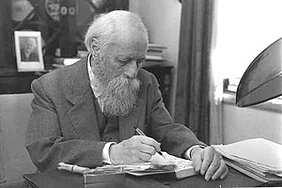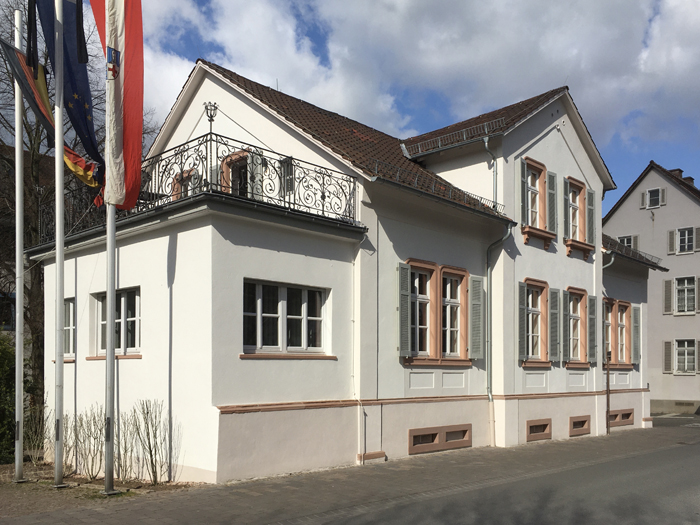The former home of Martin Buber, the famous Jewish thinker and pioneer of dialogue, in Heppenheim, Germany has served for the past 40 years as the ICCJ’s headquarters. The Vienna-born philosopher lived there from 1916 to 1938. Then the family had to move to Jerusalem because of the increasing persecution of Jews in Germany by the National-Socialist regime.
One special interest of Buber is perhaps less known but remains important: He was one of the first Zionists who gave thought to the Jewish relationship with the Arab population of Palestine. On the occasion of the Zionist Congress at Karlsbad in 1921, he composed a draft resolution on the ‘Arab Question’ (Resolution zur arabischen Frage), in which he expressed hope for mutual cooperation based on solidarity and community. His post-1938 life in Jerusalem was shaped by this hope of solidarity between Jews and Arabs.
At first, the Buber family lived in a house in Abu Tor, an Arab neighbourhood near Jerusalem. But the shifting lines of combat during the war following Israel’s Declaration of Independence in 1948 made it necessary for them to move to a Jewish quarter.
Martin Buber was an active and critical commentator on Israeli politics and published his views in numerous newspaper articles. As a professor at the Hebrew University in Jerusalem, he financially supported his Palestinian students with scholarships and grants.
Recognizing Buber’s important contributions, David Ben Gurion, Israel’s first prime minister, and not infrequent target of Buber’s criticism, called him ‘the conscience of Israel’ in his eulogy for him.
May the dedication of Martin Buber to dialogue and solidarity be a model for all of us in years to come!
(Any use of pictures related to this article requires permission of the ICCJ.)


